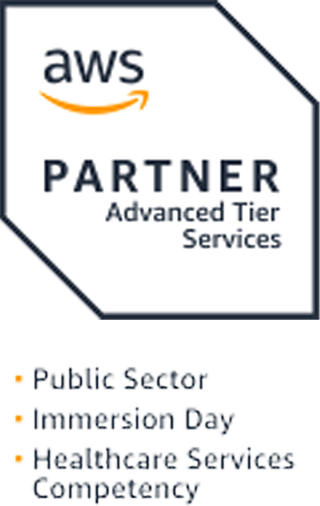In the ever-evolving landscape of healthcare, the adoption of cloud-based Electronic Health Record (EHR) systems has emerged as a pivotal solution to enhance operational efficiency and streamline healthcare processes.
This blog explores the benefits that cloud-based EHR systems provide in optimizing healthcare operations. From increased data accessibility and security to improved collaboration among healthcare professionals, cloud-based EHR systems are transforming how healthcare organizations handle patient information to support improved patient care.
Improved Data Accessibility
Healthcare organizations are confronting substantial hurdles due to the exponential surge in data. IDC forecasts a staggering 175ZB increase in data volume by 2025, with an annual growth rate of 61 percent1. Regulatory mandates necessitate extended data retention periods for much of this data. As data volumes expand, the imperative arises to store it more economically without compromising accessibility, thereby unleashing the full value of patient data.
One of the primary advantages of cloud-based EHR systems is the enhanced accessibility of patient data. Traditionally, healthcare providers relied on cumbersome paper records or on-premises electronic systems, which often led to inefficiencies in accessing patient information. 72% of the C-suite say their outdated legacy platforms are holding them back, hampering their ability to migrate to new technologies and making their IT functions less responsive to market change2.
With cloud-based EHR systems and legacy data archival, healthcare professionals can securely access patient records from any location with an internet connection. This increased accessibility facilitates quicker decision-making and improves patient care outcomes by ensuring that relevant medical information is readily available to authorized personnel.
Moreover, cloud-based EHR systems enable seamless integration with other healthcare applications and systems, further enhancing data accessibility. By consolidating patient information in a centralized cloud platform, healthcare organizations can eliminate silos and streamline data exchange between different departments and external healthcare providers.
This interoperability not only improves the continuity of care but also reduces duplicate data entry and minimizes errors, ultimately contributing to operational efficiency and better patient outcomes.
Streamlined Workflow Management
Another key benefit of cloud-based EHR systems is the ability to streamline workflow management within healthcare organizations. Traditional paper-based or on-premises electronic systems often necessitate manual data entry and time-consuming administrative tasks, leading to bottlenecks, and inefficiencies in healthcare workflows.
Cloud-based EHR systems automate many of these routine tasks, such as appointment scheduling, billing, and prescription management, allowing healthcare professionals to focus more on patient care.
Additionally, cloud-based EHR systems offer customizable workflows and task management features, enabling healthcare organizations to tailor their processes to suit their specific needs and preferences. This flexibility not only improves efficiency but also enhances the overall quality of patient care by ensuring that healthcare professionals can deliver timely and personalized services.
By streamlining workflow management, cloud-based EHR systems empower healthcare organizations to optimize resource utilization, reduce administrative burden, and improve patient satisfaction.
Data Security and Compliance
In addition to improving data accessibility and streamlining workflow management, cloud-based EHR systems also offer robust data security and compliance features. Patient confidentiality and data security are paramount in healthcare, and cloud-based EHR systems employ advanced encryption, access controls, and data backup mechanisms to safeguard sensitive patient information.
Cloud-based EHR systems also help healthcare organizations stay compliant with regulatory requirements such as the Health Insurance Portability and Accountability Act (HIPAA) and the General Data Protection Regulation (GDPR).
Along with compliant regulations, security is a top benefit of cloud computing, according to 60% of C-Suite executives — ahead of cost savings, scalability, ease of maintenance, and speed3. By storing patient data in secure cloud environments with built-in compliance features, healthcare organizations can mitigate the risk of data breaches, and ransomware attacks, and ensure adherence to regulatory standards. This proactive approach to data security and compliance not only protects patient privacy but also fosters trust and confidence among patients and stakeholders.
EHR Cloud Hosting: Insight for CIOs, CTOs, and CFOs
SaaS systems, unlike on-premises EHR systems, are hosted in the cloud, making implementation simpler within healthcare organizations. The SaaS provider manages updates and patches, alleviating the IT workload for healthcare organizations and enabling them to prioritize patient care. However, CTOs must carefully consider hosting options. In a SaaS model, EHR providers may control data access, hindering Business Intelligence programming. Optimal access to patient data is achieved by hosting the EHR in the cloud. Anytime, anywhere access will provide the seamless workflows CIOs strive to achieve. CFOs will want to look for flexible pricing models, allowing healthcare organizations to pay only for the resources they use, which can result in cost savings compared to traditional on-premises hosting. Additionally, AWS cloud hosting scalability further optimizes resource usage, aligning costs with demand.
Enhancing Healthcare Efficiency through Cloud-Based Collaboration
Keystone Technologies and Sublimation Health have partnered to improve patient care by utilizing cloud technology in healthcare IT. As AWS Advanced Consulting Partners, this collaboration aims to optimize clinical EHRs and integrate applications seamlessly on AWS, to enhance patient outcomes.
“Innovating patient care while creating clinician happiness is paramount. It’s about being curious and discovering how to leverage technology to drive efficiency and promote equitable, culturally sensitive health and care.” Shafiq Rab, MD, executive vice president, chief digital officer and system CIO of Burlington, Mass.-based Tufts Medicine, and current CHIME CIO of the Year. Dr. Rab established the first-of-its-kind modernization journey to AWS resulting in creating a meaningful differences in patient and clinician’s lives.
With over two decades of experience in EHR cloud solutions, Keystone Technologies ensures the efficient delivery of standardized EHR cloud interoperability for healthcare providers. Sublimation Health leads in migrating clinical systems to the public cloud, offering scalability, cost savings, and cybersecurity defense.
This partnership emphasizes patient care, providing vital information through Epic cloud-based solutions on AWS. By streamlining access to secure data, it enhances the patient experience, creating a smoother care environment. Keystone Technologies and Sublimation Health are committed to advancing patient care through innovative technology solutions and strategic consulting.
By modernizing their ecosystem with cloud technologies, healthcare organizations prioritize saving lives over managing data storage. Strengthening security, increasing operational flexibility, and reducing costs are key benefits of this cloud-first approach in healthcare IT modernization.
Conclusion
In conclusion, the adoption of cloud-based EHR and data legacy archival, revolutionizing healthcare operations by enhancing data accessibility, facilitating collaboration among healthcare professionals, streamlining workflow management, and ensuring robust data security and compliance. By leveraging the scalability, flexibility, and security offered by cloud technology, healthcare organizations can optimize their processes, improve patient care outcomes, and adapt to the evolving healthcare landscape.
As the healthcare industry continues to embrace digital transformation, cloud-based EHR systems are poised to play a pivotal role in shaping the future of healthcare delivery.
Learn more about Keystone Technologies EHR
Keystone Technologies supports an elastic hosting service meticulously crafted to support every facet of your healthcare EHR environments, including Production, Test, Read-Only, and BC/DR. Our cloud based EHR hosting services solution boasts a robust architecture, utilizing secure and reliable technology platforms to uphold the safety and integrity of patient data.
Learn more about Sublimation Healthcare
Sublimation Health offers cloud and infrastructure expertise for healthcare modernization. We help leading hospitals and health systems architect, migrate, and manage critical applications in the cloud, delivering savings, security, and scalability in the process.
Learn more about AWS Healthcare and Life Science
AWS is the trusted technology and innovation partner to the global healthcare and life sciences industry, providing unmatched reliability, security, and data privacy. From generating new therapeutic candidates, to better matching patients with the right clinical trials, to powering patient engagement applications, AWS makes it easier to access the services, data, models, and secure infrastructure needed to scale generative AI across your organization. Learn how generative AI can accelerate health innovations and improve patient experiences.
2https://madeintandem.com/blog/technical-debt-legacy-systems-affecting-digital-transformation/

